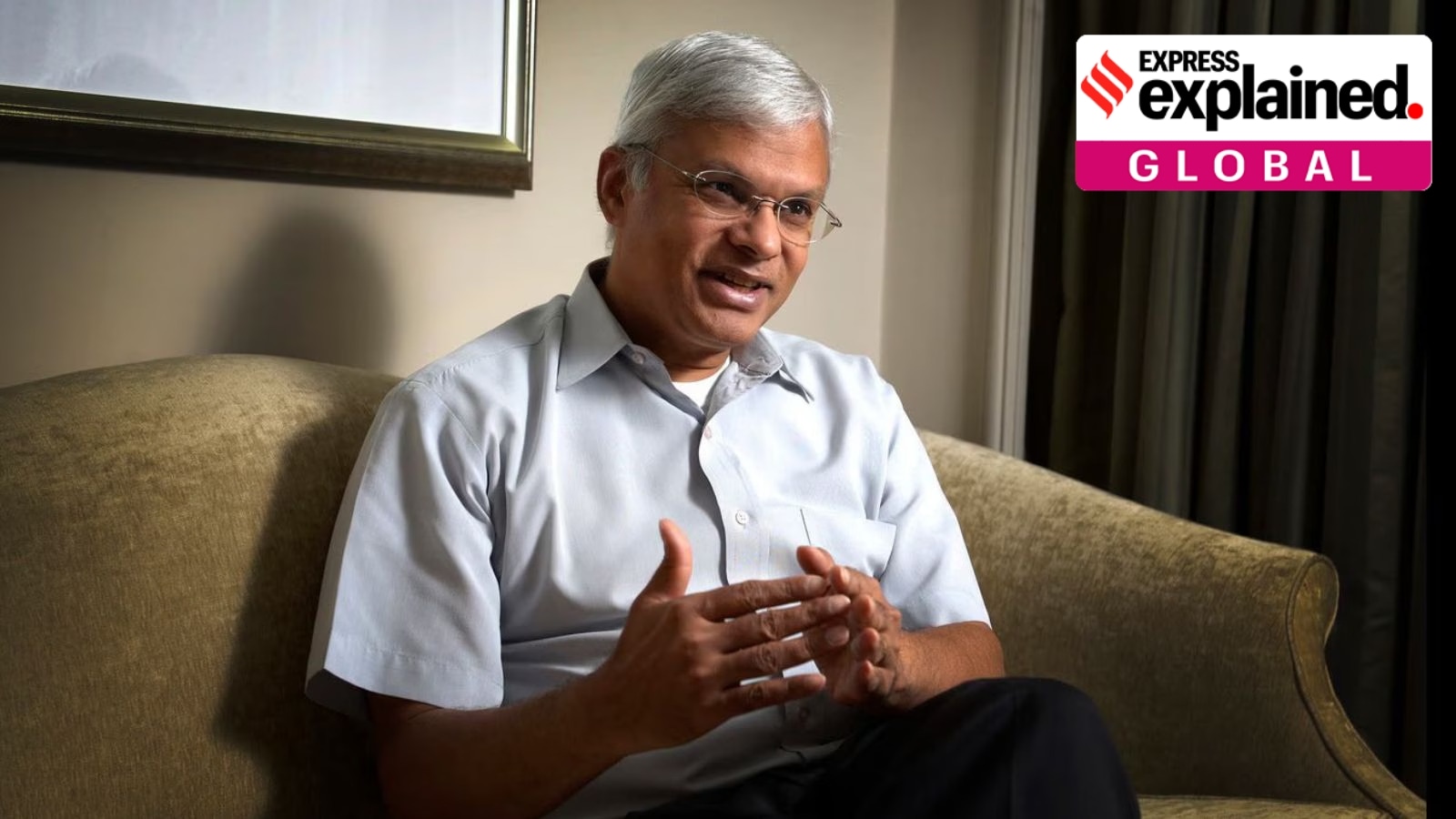Who is Ashley Tellis, Indian-origin US strategist charged with keeping secret defence files?
Who is Ashley Tellis, Indian-origin US adviser Ashley Tellis arrested: Ashley Tellis, an Indian-origin foreign policy expert on United States and South Asian affairs, was arrested this weekend after authorities allegedly discovered more than 1,000 pages of top secret documents at his Virginia home
 Who is Ashley Tellis: Ashley Tellis, 64, has long been a respected figure in the US foreign policy establishment. (File)
Who is Ashley Tellis: Ashley Tellis, 64, has long been a respected figure in the US foreign policy establishment. (File)Who is Ashley Tellis: Ashley J Tellis, an Indian-origin foreign policy expert who helped negotiate the India-US nuclear deal, was arrested this weekend and charged with illegally storing sensitive government records, the US Department of Justice (DoJ) announced on Tuesday (October 14).
Federal agents found more than 1,000 pages of top secret documents at the basement of his home in Vienna, Virginia, the DoJ said. According to court filings, surveillance footage shows Tellis leaving several federal buildings, including a State Department office, carrying a briefcase that investigators believe contained the printed materials.
“The charges as alleged in this case represent a grave risk to the safety and security of our citizens,” Lindsey Halligan, the US attorney for the Eastern District of Virginia, said in a statement. If convicted, Tellis can face prison time of up to 10 years, and a fine of up to $250,000.
Bush adviser, India expert
Tellis, 64, has long worked at the very highest levels of the US government, including as an (unpaid) adviser to the US State Department, and a contractor in Pentagon’s Office of Net Assessment.
He is the Tata Chair for Strategic Affairs and a senior fellow at the Carnegie Endowment for International Peace, specialising in international security and US foreign and defense policy, with a special focus on Asia and the Indian subcontinent.
Previously, he was commissioned into the US Foreign Service where he served as senior advisor to the Ambassador at the US Embassy in New Delhi. He also served on the National Security Council staff as special assistant to President George W Bush, and senior director for strategic planning and Southwest Asia.
Helped negotiate n-deal
During the Bush years, Tellis was intimately involved in negotiating the civil nuclear agreement with India.
In 2001, he authored an influential book titled India’s Emerging Nuclear Posture, which effectively paved his path into the US foreign policy establishment. In the book, Tellis argued that “India’s emergence as a true nuclear weapon power will more likely be a slow, gradual, and distinctive process” due to a number of factors, from “India’s traditional and highly publicised commitment to disarmament” to the limitations of its “adversaries’ coercive capabilities”.
The larger point was to assuage American concerns regarding nuclear proliferation in South Asia: Tellis argued that “a genuine expansion of ties with New Delhi will promise more favorable outcomes for American interests across the board than the traditional US policy” of keeping nonproliferation as a precondition for deepening bilateral ties.
Tellis’ position would go on to inform Washington’s India policy, and be an intellectual ballast for the civil nuclear deal eventually inked in 2008.
Born in Mumbai, RAND analyst
Prior to his government service, Tellis was senior policy analyst at the RAND Corporation, and professor of policy analysis at the RAND Graduate School. He has also served as Research Director of the Strategic Asia Program at National Bureau of Asian Research and co-editor of the program’s annual volume since 2004.
Tellis was born in 1961 to a Christian family in Mumbai. He earned his BA and MA from St. Xavier’s College, Mumbai. He would migrate to the US to pursue his PhD from the University of Chicago. His PhD thesis ‘Drive to Domination: Towards a Pure Realist Theory of Politics’ was published in 1994.
- 01
- 02
- 03
- 04
- 05






































